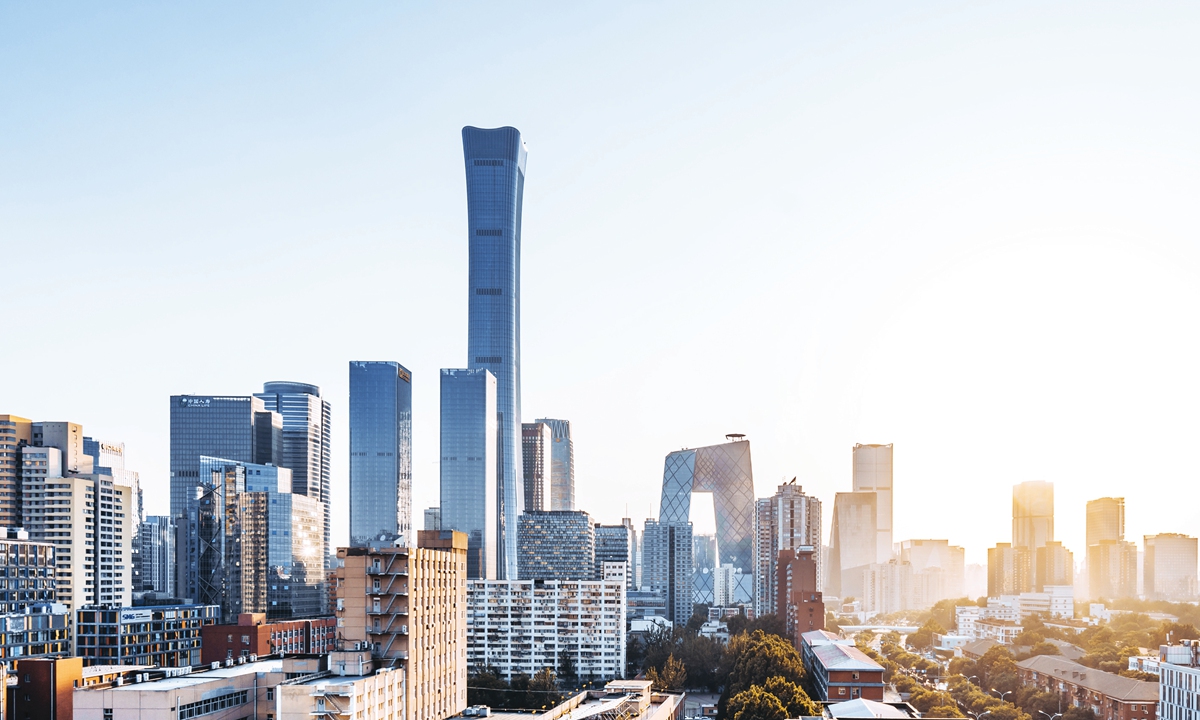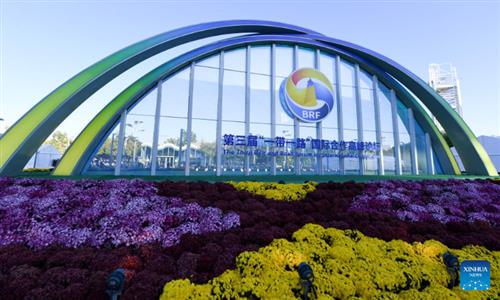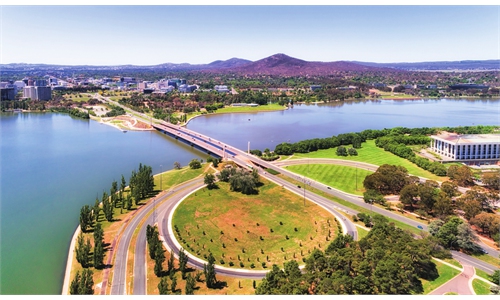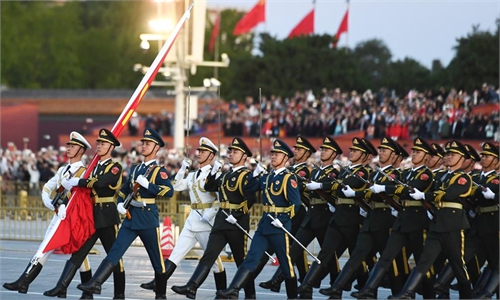
A view of Beijing Photo: VCG
Editor's Note:In 2023, the world continued to witness significant changes and turbulence. As we have entered into 2024, we conducted in-depth interviews with leading strategists from various countries and regions to gather their perspectives on the prominent global issues of 2023 and China's role in addressing them as well as their expectations for China in 2024.
Danilo Türk, former president of Slovenia and President of World Leadership Alliance-Club de Madrid
The year of 2023 was very active for China. It started with a paper stating its position on the political settlement of the Ukraine crisis in February, which was a very good and valuable document. We have to understand that in the West, this paper was criticized for not being sufficiently specific, but there is something that the critics didn't understand. That was not meant to be a peace plan, but a conceptual framework within which a proper peace plan can be developed gradually.
And then China [this year] was active on the Middle East issue. For example, it helped to bring together an important movement in March between Iran and Saudi Arabia. In June, while receiving the visiting Palestinian president, Chinese President Xi Jinping reemphasized the principle of the two-state solution, something that people didn't really notice at the time, but something that has subsequently become quite central.
Now, when one talks about Gaza, one has to know that the political solution is the only solution that is necessary. Everything else is just temporary. The solution would require a full state of sovereignty for Palestine as well as full membership in the United Nations (UN). In the meantime, we have seen that during China's presidency in November, the UN Security Council first enabled the adoption of a resolution on Gaza. It was not a very strong resolution, but still, it was the first step.
So, if we look at the year 2023, we can see that China was not only very active, but also very successful. Many things are not yet final, but in diplomacy, you don't come to the finality with haste. Being persistent is key, and I believe that the avenues that China opened are healthy and will lead to success.
Chas Freeman, former senior US diplomat
In San Francisco in November, Chinese President Xi Jinping noted that "for China and the US, turning their back on each other is not an option, it is unrealistic for one side to remodel the other." He also stressed that "the hope of the China-US relationship lies in the people, the vitality comes from exchanges at subnational levels."
I thought Xi's statements and performance in San Francisco were exemplary. That is good diplomacy. I think there's a long tradition in China of seeking common ground while reserving differences, and this is a sound approach to managing difficult relations. I think he's absolutely correct that the basic support for the relationship is people-to-people relations. I think he was successful in reassuring many Americans who are favorable to China in the business community. China also values their friendship and wishes to continue to cooperate with them. I think he also wanted to reassure Chinese domestic private sector that he could manage the relationship with the US, and I think he succeeded in that.
As for the Middle East, where China does not have the burden of history that the US does, I think we should be working together to solve these two wars and to end them. China has been very careful to avoid becoming entangled in the quarrels of countries in the Middle East. I think that's been a wise policy. We should be looking to China for help.
John Menadue, former Secretary of the Department of Prime Minister and Cabinet under Gough Whitlam and Malcolm Fraser
I think China has done a very good performance. The progress of the Belt and Road Initiative, the expansion of BRICS, and the role of China in bridging the relationship between Saudi Arabia and Iran have all been very substantial achievements.
The credit goes to China. Its diplomatic clout has been improved, while America continues to make awful mistakes. The US is clearly losing influence in the Global South. China is taking a great interest and is assisting the Global South. The Global South is watching what America has done in Ukraine and now in Gaza. During the COVID-19 period, the West, and particularly the US, turned its back on the Global South, even when it had a surplus of vaccines. It didn't supply or give any assistance to the poor countries in the Global South.
There are the historical reasons why American leadership, even its moral leadership, has been declining dramatically in the last few years. China has clearly stepped up in the areas that I mentioned. China should be quite pleased with the progress it has been making. But obviously there are major concerns about what's happening in the South China Sea, continuing provocations over Taiwan question. There's a lot of diplomacy still required from China.
Koh King Kee, president of Center for New Inclusive Asia, a non-government Malaysian think tank
The Third Belt and Road Forum for International Cooperation held in Beijing on October 17 and 18, 2023, commemorating the 10th anniversary of BRI is without question the most important diplomatic event of the year for China. Over the last decade, the BRI has evolved from a connectivity project, based on the concept and spirit of the ancient Silk Road, into an inclusive global cooperation partnership led and driven by China, but shared and owned by all partner countries. The BRI has become a platform through which China shares its technology, development experience, contributing to the realization of the UN Sustainable Development Goals. It is a concrete manifestation of China's peaceful rise.
China's successful mediation of the Saudi-Iran detente in March 2023 is another notable diplomatic achievement that tacitly reflects China's growing influence on the global stage. This diplomatic feat, which surprised the West, will foster the collective rise of the Muslim world and potentially change the global power dynamics in the post-Ukraine war era.
Peace is the foundation of humanity's persistent pursuit of development. There can be no sustainable development without peace and no peace without sustainable development. China believes that security is the most important global public good, and development is the shared responsibility of all countries.
China advocates coexistence, exchange and mutual learning among different civilizations, as no civilization is more superior than any other. All countries should uphold common values of peace, development, equity, justice, democracy and freedom.
The global challenges we face today impose an urgent need for a new paradigm of global governance beyond just optimizing the self-interests of nation-states. China's three global initiatives are its answers to the world that is now at the crossroads of history.



